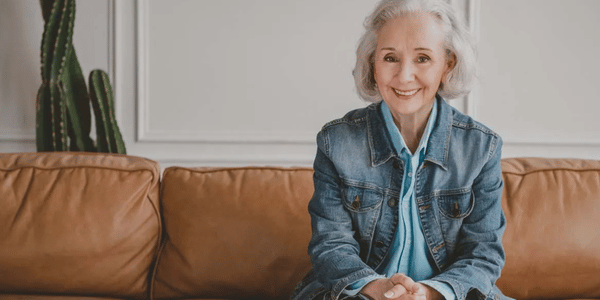CAREGIVING, Elaine Poker-Yount
Dementia Caregiving: The Voice We Don’t Hear

Published in the Arizona Republic, March 26, 2025
For those who care for someone with a chronic or debilitating condition, the road is long and the commitment real – demanding flexibility, endurance, and creativity. In most cases, we have the gift of spoken language to help us navigate the journey together. As things progress, we can assess where we are and adapt as needed. There’s often a predictable path, giving us a sense of what lies ahead. In partnership, we discuss, plan, and adjust to maintain our “new normal.”
Dementia, however, takes away the gift of verbal communication. As the condition advances, processing slows, and we struggle to understand others and express what’s in our hearts and minds. Information must be delivered simply and briefly. Most people with dementia lose awareness that anything with them is different or changing. Fairly early on they also lose the ability to see something from another’s perspective. In the early-stage changes are fleeting and sporadic, leading others to misinterpret awkward or challenging behaviors as intentional. As abilities decline, these changes happen more frequently and are unique to each person, making partnership as we know it even more challenging.
Understanding what our loved one is experiencing can improve our ability to be effective, compassionate care partners and reduce frustration when things beyond anyone’s control test our patience.
The following is a letter from an anonymous source – given to me by a person living with dementia who does have significant awareness of the changes they’re experiencing – and felt this was not only profound, but heartbreakingly accurate. They asked me to share it. It echoes the experiences of many and reflects lessons I’ve learned working with this community over the years:
“As one who is being cared for, please understand that I hate the position I find myself now. My friends and I, we all moaned and groaned about it, even laughed at ourselves as we began to notice changes in our bodies and minds. But it’s not funny anymore. So, as I can no longer consistently articulate my needs, thoughts and feelings, please remember I didn’t choose this reality.
“It disturbs and saddens me when I hear you talk about me as if I wasn’t there. I am here and I can hear (well mostly!) I may not always be ‘present,’ as that ability to tune in seems to come and go, and often I am aware of that, and it frustrates me because I have no control. I am still interested in having a say in those things that matter to me when I can. Please ask.
“I still like the way good food tastes even though not all of it tastes good anymore. I have my teeth so please, enough with the applesauce and bring on the fresh fruit. I really enjoy getting out of the house and seeing stimulating things and hearing beautiful music. I still enjoy looking smart, having combed hair and getting my rogue facial hair plucked. I enjoy the cadence of someone reading to me, even though I may not understand every word. And while I may put up a fuss because I am feeling comfortable, or lazy, I do appreciate that I can still sort silverware or fold towels. Excuse my lack of perfection, but appreciate my ability to contribute, however small.”
It’s hard not to feel a bit of a gut punch reading that prose if you’ve ever been impatient at one of the scenarios outlined. No judgment, we’re all human and as such, we feel what we feel and make mistakes. But it’s helpful to remember that even when we don’t hear the voice, it’s both wise and empathetic to remember it’s still there and it does have something to say.
By Elaine Poker-Yount
Elaine Poker-Yount is an Aging and Dementia Care Educator/Specialist at Successful Aging AZ. Her columns are featured monthly in The Arizona Republic.







